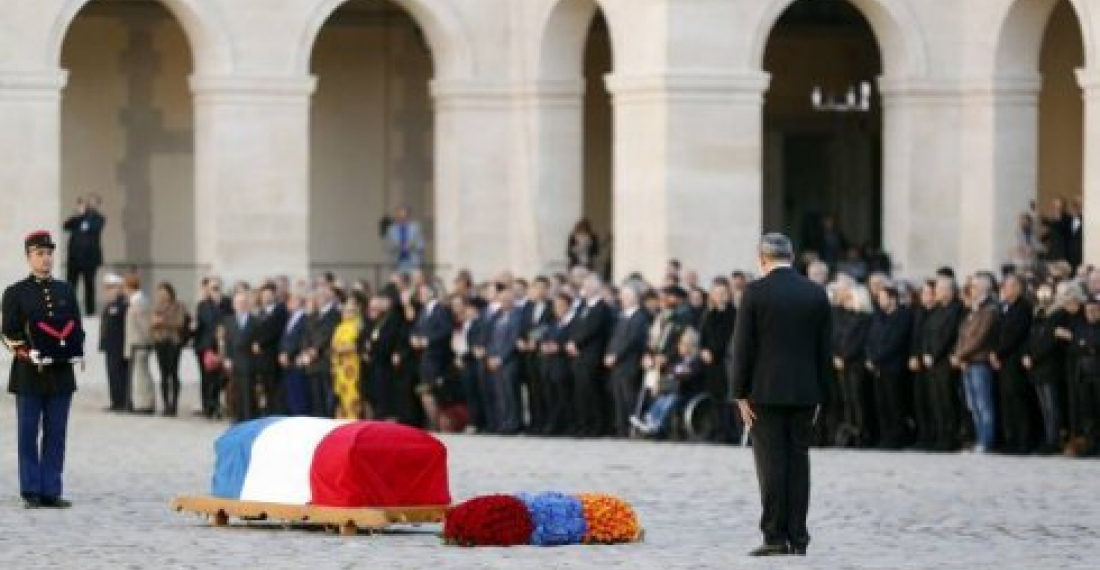Armenian and French leaders on Friday (5 Ocotober) jointly paid tribute to Charles Aznavour who died earlier this week, at a ceremony held at the Hotel des Invalides in Paris. French president Emanuel Macron, and Armenian prime minister, Nikol Pashinyan led the tributes. Aznavour, a legendary singer and one of the most famous French cultural figures of the 20th century, had Armenian ancestry, and identified closely to his Armenian heritage, despite being a French icon.
"We gathered today to bow and honor the great master of French chanson, Charles Aznavour. For eight decades this name has engraved smiles on millions of faces, has excited or calmed the breath of tens of millions, has injected glow in hundreds of millions of eyes", prime minister Pashinyan said at the ceremony.
On his part, president Macron said, "During the years Charles Aznavour's voice has united us, regardless of our age and social status. Aznavour united us and become one of France's faces. Aznavour's songs are first of all poems, lyrics of which go into our hearts, the titles of these poems and chorus of the songs have become a legacy for us."
"I am sure that for many years to come millions of people at times of hardships, hope and happiness will keep in their memory the music or lyrics of the songs which this exclusive artist has left us with. He will continue his path in the hearts of us all, walking ahead, with his hand in the pocket, a smile on his face, and together with us he will proudly pass this century. From now he will never leave us, because poets never die in France."
Aznavour will be buried on Saturday. Flags will fly at half mast in Armenia on this day.
source: commonspace.eu
photo: The coffin of Charles Aznavour lays in honour, draped by the French flag, at a ceremony held at the hotel des invalides in Paris, attended by French and Armenian leaders.







